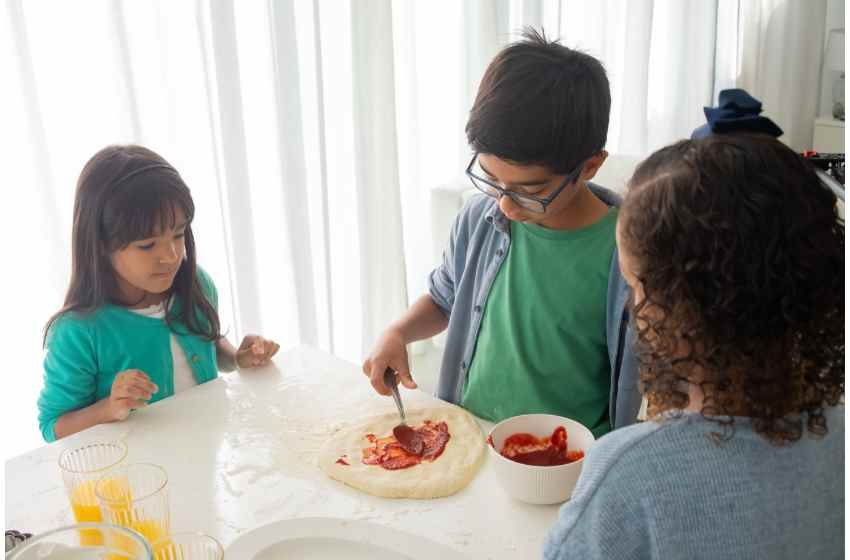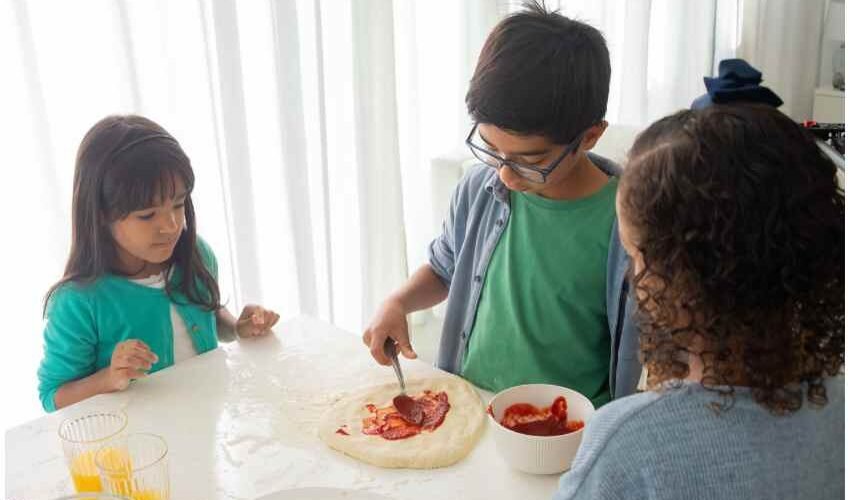
In today’s fast-paced world, we must be confident in our ability to ensure the safety and well-being of our children. As parents, guardians, and educators, we should be fully equipped to protect our little ones from all potential harm. One of those areas often not considered is food allergies and yet, according to Allergy UK, “almost 1 in 12 young children suffer from a food allergy and they seem to be getting more and more common.” These post will consider the strategies needed for managing children’s food allergies.
Would you like to discover how to protect your children’s health and happiness from food allergies? Of course you would!
Our article explores essential measures and provides invaluable insights to keep your little ones safe and healthy. From understanding the causes and symptoms of food allergies to implementing practical strategies for prevention and management, we will journey together towards building a safer and more inclusive environment for all children.
Join us as we dive into the intricacies of protecting our most precious assets – our children – and learn the strategies needed to navigate the complex world of food allergies.
Consultation with a Specialist Allergy Clinic for Children
If you think your child may have food allergies or, indeed, any type of allergies, it can be incredibly challenging to ascertain definitely what is causing the problem. A consultation with a specialist clinic, such as this allergy clinic in London for children, can be the first step towards effectively understanding and managing food allergies in our little ones.
These clinics specialise in diagnosing and treating allergies, and comprehensively assessing your child’s condition. With their expertise, they can help identify the specific triggers that cause allergic reactions and develop personalised treatment plans to minimise the risk of exposure.
The professionals at these clinics focus on treatment and provide valuable education and support for families. They offer guidance on allergen avoidance, teaching parents and caregivers how to read food labels, identify hidden allergens, and navigate potential allergen exposure in different environments.
Moreover, if it is felt necessary, they can also recommend appropriate medications and educate families on administering them safely during allergy emergencies. It is not normally good practice for children to take medications on an ongoing basis, but understanding allergy emergencies and the actions to take are absolutely essential.
By consulting with an allergy clinic, parents and caregivers can feel empowered and equipped to manage their children’s food allergies effectively. It ensures that they have access to the latest medical knowledge, technology, and resources to keep their children safe.
This proactive approach can significantly improve the quality of life for both children and their families, giving them peace of mind and enabling them to thrive despite the challenges posed by food allergies.
Educating Children and Caregivers
Educating children and caregivers about food allergies is crucial in ensuring the safety and well-being of our little ones. By providing accurate information and raising awareness, we can empower children and their caregivers to manage these allergies effectively.
For children, education plays a vital role in helping them understand their food allergies and how to stay safe. Teaching children about their specific allergies, the signs and symptoms to look out for, and the importance of avoiding certain foods can empower them to take responsibility for their well-being. In addition, as they get older and are more likely to venture out on their own with friends, educating children about cross-contamination and how to read food labels can help them make informed choices regarding what they eat.
Equally important is educating caregivers, including parents, guardians, nursery schools and educators, about food allergies. Caregivers who understand the risks and potential dangers can take appropriate precautions to create safe environments for children with allergies. This includes effectively communicating with anyone who is likely to have responsibility for your child at any time is well-informed and capable of providing a safe space for children with food allergies.
Creating a Safe School Environment
Creating a safe school environment is essential for protecting our children from potential harm, including the threat of food allergies. One of the key strategies for managing food allergies in schools is ensuring effective communication between all parties involved. It is important to ensure schools and nursery facilities clearly understand each child’s specific dietary restrictions and allergens and implement protocols to prevent cross-contamination in school cafeterias and classrooms.
Another crucial aspect of creating a safe school environment is educating staff and students about food allergies. Teachers should receive comprehensive training on recognising and responding to allergic reactions, and students should be educated on the importance of not sharing food and being mindful of allergens. Age-appropriate materials and activities can raise awareness and foster empathy towards those with food allergies.
By implementing these strategies, we can create a safe and inclusive school environment for all children, minimising the risk of allergic reactions. Our duty as parents, guardians, and educators is to prioritise the well-being and happiness of our little ones, ensuring they can thrive in an environment that promotes their health and safety.
Source: healthylifeessex.co.uk









 Please wait...
Please wait...
Add comment